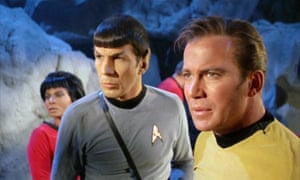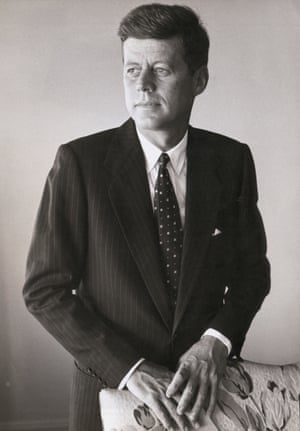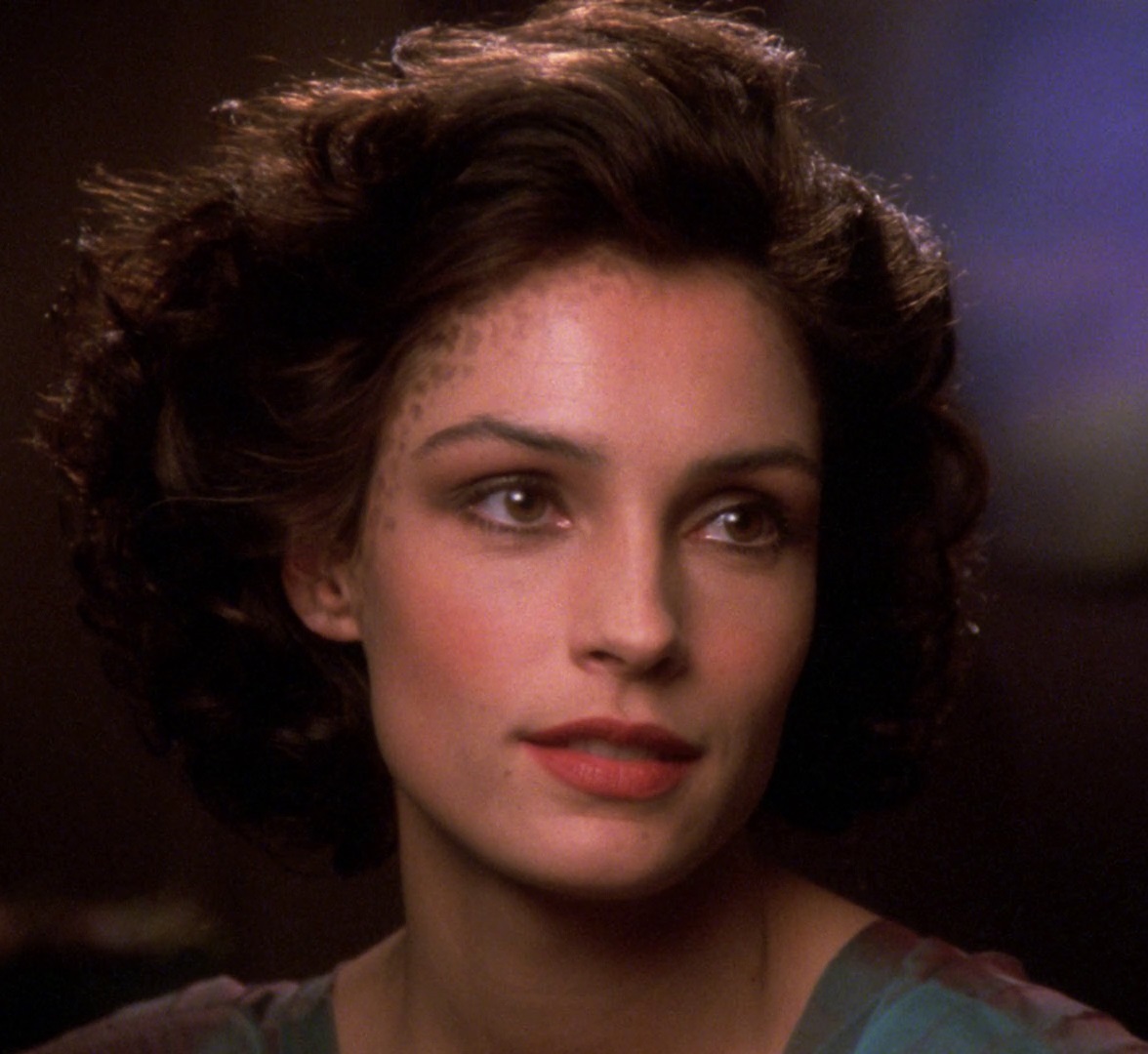Star Trek’s 50-year mission: to shine a light on the best of humankind
The visionary sci-fi series first aired in September 1966 – and its utopian, confident blueprint for society still resonates in the age of Trump

Nichelle Nichols as Uhura, Leonard Nimoy as Spock and William Shatner as Kirk in the original series of Star Trek. Photograph: CBS Photo Archive/Getty Images
Dave Schilling
@dave_schilling
Sunday 4 September 2016 07.00 BST
Shares
533
Comments
289
Save for later
There is no grand political statement in the first episode of
Star Trek, 50 years ago. The Man Trap is a languid little thriller about a monster that eats salt and has a curious habit of shape-shifting into the image of your ex-girlfriend.
If you happened to tune in on 8 September 1966, you would have had no concept of the utopian idealism favoured by
Star Trek’s creator, Gene Roddenberry, no inkling of the socialist concepts of the sharing of resources that would pop up in later incarnations of the franchise. It was high adventure set in space, nothing more.
But there’s no question that what defines
Star Trek today is an egalitarian, pluralistic, moral future society that has rejected greed and hate for the far more noble purpose of learning all that is learnable and spreading freedom throughout the galaxy.
That doesn’t exactly chime with the world we live in: one that is increasingly polarised, violent, and arguably teeming with existential despair.
Star Trek was born out of the era of John F Kennedy, the space race, a well-educated middle class and a sense in America that anything was possible.
Of course, underneath that attitude was the threat of the atomic bomb, the simmering tensions of the civil rights conflict, gender inequality and growing anger at the Vietnam war.
Star Trek’s creative brains trust – Roddenberry, Gene Coon, DC Fontana, John DF Black and a who’s who of science fiction luminaries – was marvellously adept at grappling with these issues and, through the course of 44 minutes plus commercials, convincing the audience that intelligent, progressive minds could work together to solve any problem.
Captain Kirk, Mr Spock and Dr McCoy often thought their way out of a situation, rather than simply blasting everything in sight. That’s an inherently liberal position to take: but there are still conservatives among us who project their own ideas on to the series.
Advertisement
Barack Obama is a well-known
Star Trek fan, but so is Texas senator and former presidential candidate Ted Cruz, who
told the New York Times Magazine last year: “It is quite likely Kirk is a Republican.” He also compared William Shatner’s portrayal of Kirk to that of
Star Trek: The Next Generation’s Captain Jean-Luc Picard, as played by Sir Patrick Stewart. “Kirk is working class; Picard is an aristocrat. Kirk is a passionate fighter for justice; Picard is a cerebral philosopher.” One could be forgiven for thinking he had substituted Kirk for himself and Picard for Obama. Such is the stereotype of Republicans (rugged adventurers) and Democrats (stuffy twits) in the US.
In that same interview, Cruz said: “The original
Star Trek pressed for racial equality, which was one of its best characteristics, but it did so without sermonising.” That’s a peculiar way to look at the show, considering
Star Trekfeatured the first interracial kiss on American TV and numerous episodes were allegories about the evils of racism – specifically the episode Let That Be Your Last Battlefield, an unsubtle instalment from the third and final season in which aliens with half-white and half-black faces squabble over their skin-colour differences.
Mark A Altman, a screenwriter, producer and lifelong
Star Trek fan who recently wrote
The Fifty-Year Mission: The Complete Uncensored & Unauthorized Oral History of Star Trek, notes the strong connection between
Star Trek’s vision and the liberal ideals of JFK. “
Star Trek was born in the crucible of the 60s, when society was questioning many of the tried-and-true conservative 50s values they once took for granted,” he says.
 FacebookTwitterPinterest
FacebookTwitterPinterest
The show was born in the era of the space race and John F Kennedy’s ‘New Frontier’. Photograph: George Rinhart/Corbis via Getty Images
“It’s not an accident that James T Kirk was an analogue of John Fitzgerald Kennedy, nor that the final frontier was indeed a thinly veiled extension of Kennedy’s New Frontier,” he says, referring to the slogan popularised by JFK during the 1960 presidential campaign. “During a time in which mankind was questioning the very fact as to whether there would be a future in the wake of the hydrogen bomb and nuclear proliferation, and the assassinations of JFK, Martin Luther King and Robert Kennedy,
Star Trek definitively said not only would there be a future, but mankind would endure and flourish.”
Star Trek gave an already optimistic nation hope that it could get even better. The era of its original broadcast run was one in which unity seemed achievable, regardless of the obstacles before us. In 2016, science fiction rarely approaches social strife that way. Charlie Brooker’s
Black Mirror is just one example of a sci-fi series that posits a future far more ominous than what
Star Trek offered in 1966.
Altman, who is currently participating in the Star Trek: Mission New York fan convention, doubts whether Roddenberry’s vision still appeals today. “For a genre in which dystopian futures and space pulp dominate, one has to wonder whether the thoughtful, cerebral, kinder, gentle Star Trekkian ethos still has a chance to engage and excite new viewers – particularly in light of the tepid box-office reception to the most recent
Star Trek [film].”







